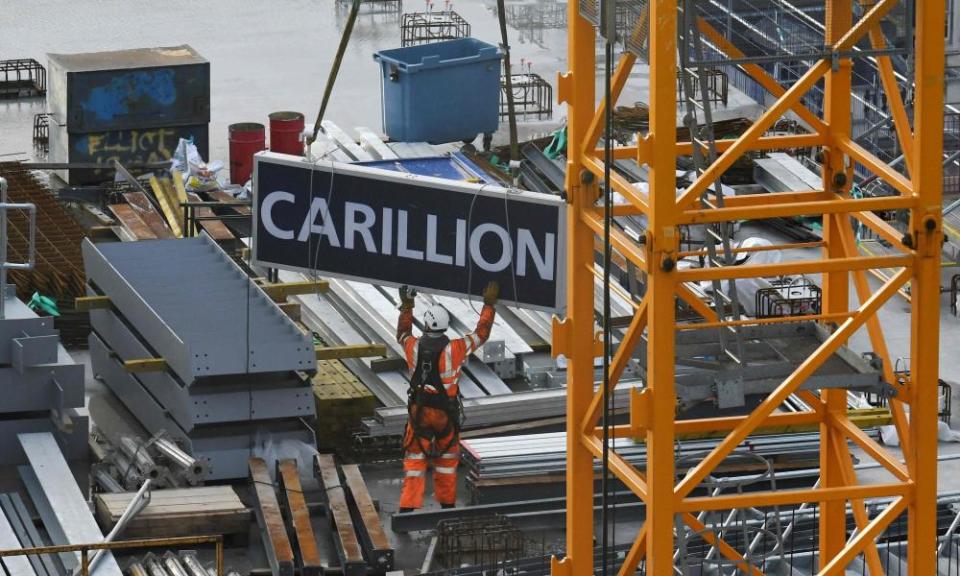Carillion fell quickly, but the auditing profession is now dragging its feet

Bankruptcies happen gradually, then suddenly, an Ernest Hemingway character famously deadpans in The Sun Also Rises. Yet the aftermath of insolvency can play out painfully slowly, as observers of Carillion’s collapse, four years ago this week, can testify.
Carillion had its fingers in a lot of pies, to the point where it is difficult to explain what its main business was: was it construction, or something woollier like “support services”? Cleaning and maintenance are crucial to almost any business, but they are also shockingly easy to outsource to complex and faceless conglomerates. That complexity extended to accounts built on the directors’ “increasingly fantastical figures”. To borrow the Queen’s question about the credit crunch, why did nobody notice?
Carillion’s crash was so severe that it has sparked years of navel-gazing by accountants and their regulators. The latest chapter will open on Monday, when a tribunal in London will look at allegations that KPMG, a former partner at the auditor and certain current and former employees issued “false and misleading information and/or documents” to the regulator, the Financial Reporting Council (FRC). KPMG declined to comment ahead of the tribunal.
KPMG self-reported the latest problems, which relate to information handed over during standard FRC inspections of audits of Carillion and Regenersis, a London-listed IT company later renamed Blancco. The regulator will not allege misconduct in the audits, nor that the financial statements were imperfectly prepared, but the tribunal will probably shine more unwelcome light on a profession that has taken a beating ever since the global financial crisis.
Reports suggest lobbyists have their claws into the reforms, watering them down in favour of a regime fit for a wheeler-dealer post-Brexit Britain
The existence of a dominant “Big Four” is not usually a good sign in any industry. Safe to say that Deloitte, EY, KPMG and PwC have all had their scandals (try Autonomy, NMC Health, Conviviality and BHS respectively) in recent years. Smaller hangers-on such as Grant Thornton have also had their moments (Patisserie Valerie and Sports Direct).
The FRC and the broader audit profession have also been in the proverbial dock in recent years. At one point there were no fewer than five separate “Whither auditing?” inquiries, and the government is close to publishing a set of reforms to audit and corporate governance that it hopes will make it much harder for balance-sheet black holes to slip past auditors unnoticed. The FRC will be replaced by a new Audit, Reporting and Governance Authority, probably in 2023.
However, recent reports suggested that business lobbyists had got their claws into the reforms, watering down some more controversial elements in favour of a “business-friendly” regime fit for a wheeler-dealer post-Brexit Britain. Gone, according to the Financial Times, will be proposals to make directors personally oversee financial reporting controls; this will be demoted instead to the corporate governance code. The code sets the standards, but companies can opt out as they see fit.
Related: Carillion collapse: two years on, 'government has learned nothing'
There are other options for seeking accountability. This week’s tribunal is one of three investigations the FRC is still running on the Carillion collapse – there is another into KPMG’s audit itself, as well as one into the company’s former directors. The government’s Official Receiver has filed a claim form suggesting that it could seek damages of as much as £1bn from KPMG for audit negligence. (KPMG has promised to contest any claim, though none has yet arrived.)
Yet industry sources suggest that readers don’t hold their breath for a payout on that scale. The Carillion fallout keeps coming – but we will have to wait even longer for answers on why it happened, and how we can avoid a repeat.

 Yahoo Finance
Yahoo Finance 